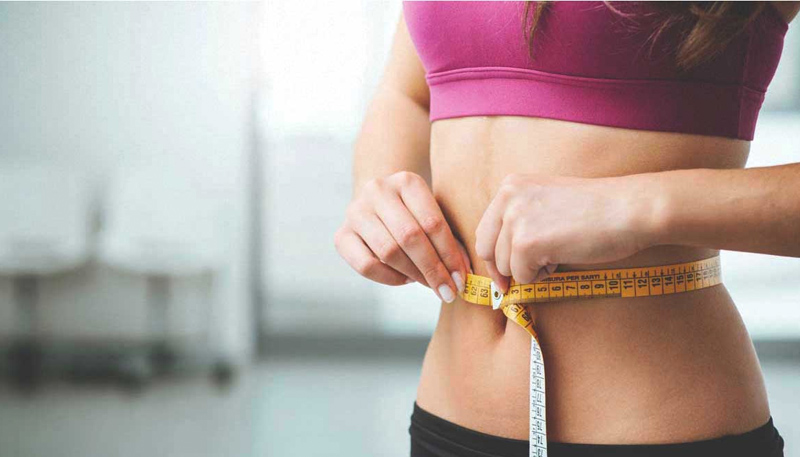Summary: Sports bras are a common item of clothing worn by women during physical activity. However, concerns about potential negative effects on breast health have been raised. In this article, we will explore the benefits and drawbacks of wearing sports bras, including potential negative effects and ways to mitigate them. Additionally, we will provide tips on how to choose the right sports bra, and properly wear and care for it. Lastly, we will address some frequently asked questions that have been asked for thousands of times.
Potential Negative Effects of Wearing Sports Bras
Women commonly wear sports bras during physical activity to provide support and prevent discomfort or injury. However, there have been concerns about the potential negative effects of wearing sports bras for prolonged periods.
One potential issue is restricted blood flow and lymphatic drainage due to the tight compression of the bra. This can lead to breast pain, swelling, and even cysts or fibrocystic breast changes. Additionally, wearing a sports bra for extended periods can cause skin irritation, chafing, and even fungal infections.
Another concern is the impact of sports bras on breast tissue. Some studies have suggested that wearing a sports bra for long periods can alter the shape and position of breasts, leading to sagging or other changes.
The tight compression of sports bras can also cause breathing difficulties. This can be particularly concerning for women with pre-existing respiratory conditions.
While the negative effects of sports bras are not yet fully understood, it is vital for women to be aware of the potential risks and to take steps to mitigate them.
Benefits of Wearing Sports Bras
Wearing sports bras during exercise has numerous benefits. First and foremost, sports bras provide support and help prevent breast discomfort and pain during physical activity. This is particularly important for women with larger breasts, as unsupported movement can cause strain on the ligaments and lead to long-term breast sagging.
Sports bras are also designed to minimize bounce and movement during high-impact activities such as running, jumping, or aerobics, which can improve comfort and overall performance during exercise. Additionally, wearing a sports bra can help regulate body temperature and prevent excessive sweating by wicking away moisture and allowing for proper ventilation.
Another benefit of sports bras is that they can help boost confidence and self-esteem during exercise, particularly for women who may feel self-conscious about their breasts or body. Many sports bras are designed with stylish and trendy designs, which can boost motivation to hit the gym or take on a challenging workout.
Overall, the benefits of wearing a sports bra extend far beyond just comfort and support. From improving performance and reducing pain to boosting confidence, a good sports bra is essential for women of all shapes and sizes.
Choosing the Right Sports Bra
With all the potential negative effects of wearing a sports bra, choosing the right one is essential to minimize these risks. Here are some tips for selecting a sports bra that will provide support without causing discomfort or harm:
- Determine your size: Get appropriately measured to ensure you wear the correct size. A sports bra that’s too tight can cause compression and restrict breathing, while one that’s too loose won’t provide enough support.
- Consider the impact level: The level of activity you’ll be doing determines the type of sports bra you need. High-impact activities require more support and compression, while low-impact exercises may only require a bra with minimal support.
- Look for adjustable straps and closures: Adjustable straps and closures allow for a better fit and help prevent chafing.
- Choose breathable materials: Look for sports bras made of breathable materials like moisture-wicking fabrics that keep you cool and dry during your workout.
- Try on multiple styles: Be bold and try several different types and brands to find the most comfortable and supportive.
Following these tips, you can find a sports bra that provides the necessary support without compromising your comfort or health.
Types of Sports Bras
Once you’ve learned how to select the right sports bra, you might be curious about the various types of sports bras are available in the market. These bras are designed to offer different levels of support and comfort to suit different activities and body types. Here are some of the most popular types of sports bras you can find:
- Compression sports bras: These bras compress the breasts against the chest wall to limit their movement during physical activity. They are best suited for women with smaller breasts.
- Encapsulation sports bras: These bras have separate cups to support each breast individually, which can reduce bounce and discomfort during high-impact activities. They are ideal for women with larger breasts.
- Racerback sports bras: These have a Y-shaped back design that provides better support and helps prevent straps from slipping off the shoulders. They are ideal for activities that involve a lot of arm movement.
- Front-closure sports bras: These bras have a clasp or zipper at the front, making them easy to put on and take off. They are ideal for women with limited mobility or those who find it difficult to fasten bras at the back.
- Adjustable sports bras: These adjustable straps and the band allow for a more customized fit, providing both support and comfort.
- Low-impact sports bras: These are designed for activities such as yoga, Pilates, or walking. They offer light support and are usually made from softer, stretchier materials.
- High-impact sports bras: These bras are designed for activities such as running, jumping, or aerobics. They offer maximum support and are usually made from sturdier, less stretchy materials.
When choosing a sports bra, it is essential to consider the level of support needed for the activity and factors such as size, fit, and comfort. Trying on different types and styles can help find the best fit for individual needs.
How to Wear and Care for Your Sports Bras
Wearing a sports bra is essential for comfort and support during physical activity, but it’s equally important to know how to wear and care for your sports bras to ensure they last longer and perform at their best. Here are some simple steps you can follow:
Step 1: Choose the Right Fit
The first step is to choose a sports bra that fits you correctly. A well-fitted sports bra should feel snug but not too tight and provide support without causing discomfort or restricting movement. When trying on sports bras, please pay attention to the fit around the band, cups, and straps, and make sure they are all secure and comfortable.
Step 2: Put on Your Sports Bra Correctly
Putting on a sports bra correctly ensures proper support during physical activity. Here are some general steps to follow when putting on a sports bra:
- Identify the front and back of the bra: Many sports bras have a label or tag indicating the front and back of the bra. If there is no label, look for a seam or design feature that indicates the front.
- Put the bra on like a t-shirt: Slip the bra over your head and slide your arms through the straps. Ensure the bra is positioned so the cups are over your breasts.
- Fasten the bra: Depending on the type of sports bra, it may have a clasp or be a pull-on style. If it has a clasp, fasten it at the back, starting from the bottom hook and working your way up to the top. If it is a pull-on style, pull it down over your chest until it fits snugly.
- Adjust the straps: The straps should be snug but not too tight. If the straps are digging into your shoulders, they are too tight. If they are slipping off, they are too loose. Make sure the bra sits evenly across your chest.
Different sports bras may have slightly different putting-on instructions, so reading the manufacturer’s instructions is essential. Some sports bras may have a front zipper or a cross-back design, requiring a different putting-on approach.
Step 3: Care for Your Sports Bras
Proper care can help extend the life of your sports bras and keep them performing at their best. Here are some tips to follow:
- Wash your sports bras regularly in cold water with a mild detergent, and avoid using fabric softeners or bleach.
- Hang dry your sports bras or lay them flat to dry, and avoid putting them in the dryer.
- Store your sports bras flat or folded, and avoid crumpling them or storing them with heavy items on top.
- Replace your sports bras regularly, especially if you notice signs of wear and tear, such as stretched-out straps or elastic.
By following these simple steps, you can ensure your sports bras provide the support and comfort you need during physical activity and last longer with proper care.
Conclusion
Sports bras are okay for you, but they have potentially negative effects if not chosen, worn, or cared for correctly. It is essential to choose the right sports bra for your needs, consider the level of impact and support required, and ensure it fits perfectly. Additionally, proper care of your sports bra is essential to maintain its support and lifespan.
The benefits of wearing a well-fitted sports bra during physical activity, such as reducing breast pain and improving comfort, outweigh the potential negative effects. By following the tips and guidelines in this article, you can ensure you get the most out of your sports bra while minimizing any negative effects.
FAQ
- Do I need to wear a sports bra when I work out?
Wearing a sports bra during physical activity is highly recommended, especially for women with larger breasts. Sports bras provide support and prevent discomfort or pain during exercise.
- Can wear a sports bra cause breast cancer?
No scientific evidence supports the claim that wearing a sports bra can cause breast cancer. However, wearing a sports bra that fits properly is essential to avoid any potential discomfort or irritation.
- How often should I replace my sports bra?
It is recommended to replace your sports bra every 6-12 months, depending on how frequently you wear it and how well you care for it. Signs that it’s time to replace your sports bra include stretched-out straps or bands, reduced support, or visible wear and tear.
- Can I wear a regular bra instead of a sports bra for exercise?
Regular bras are not designed to provide the support needed during exercise and may cause discomfort or pain. It is recommended to wear a sports bra for physical activity.
- How do I know if my sports bra fits correctly?
A properly fitting sports bra should feel snug but not too tight, with straps that do not dig into your shoulders and a band that does not ride up or shifts. You should be able to move your arms and breathe comfortably.
- Can I machine wash my sports bra?
It is generally safe to machine wash your sports bra, but using a lingerie bag and cleaning on a delicate cycle with cold water is recommended. Avoid fabric softener or bleach, and hang dry instead of a dryer.
- Can I wear the same sports bra for all types of exercise?
The type of sports bra you wear may vary depending on your exercise intensity and impact level. High-impact activities such as running may require a more supportive sports bra than low-impact activities such as yoga. It is recommended to choose a sports bra based on the level of support needed for your specific move.












